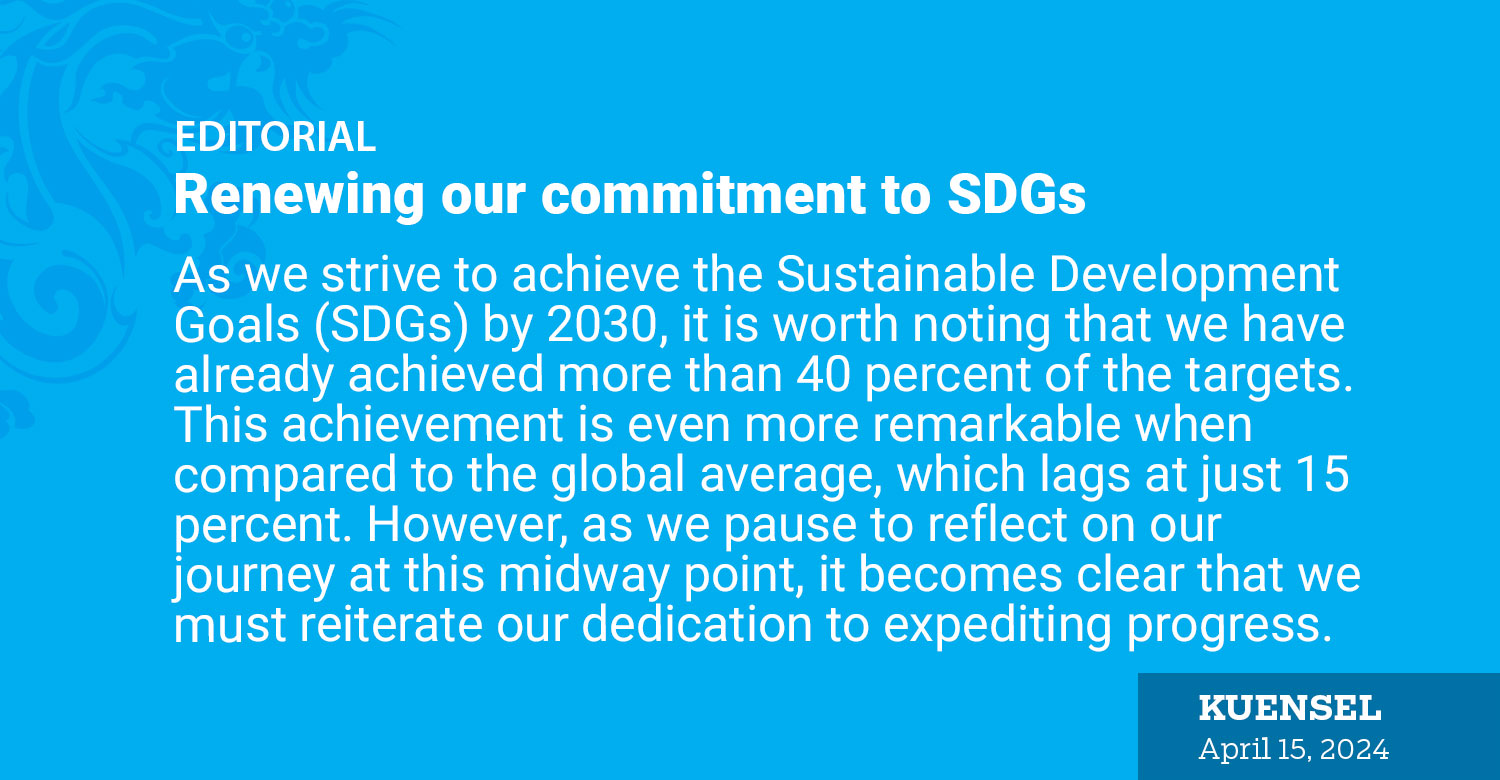As we strive to achieve the Sustainable Development Goals (SDGs) by 2030, it is worth noting that we have already achieved more than 40 percent of the targets. This achievement is even more remarkable when compared to the global average, which lags at just 15 percent. However, as we pause to reflect on our journey at this midway point, it becomes clear that we must reiterate our dedication to expediting progress.
While we have made significant strides in areas such as climate action, health, and education, our collective efforts must be redoubled to tackle persistent challenges, particularly in achieving the goal of Zero Poverty. A recent report by the UN Development Programme (UNDP) underscores both our achievements and the areas where greater focus and investment are needed.
The global landscape presents a sobering reality, with the world economy grappling with sluggish growth and mounting uncertainties. In the face of these challenges, the urgency of advancing the SDGs has never been more pressing. We stand at a critical juncture, with just six years remaining to fulfil our commitments and shape a more sustainable and equitable future for all.
Achieving the SDGs requires a comprehensive and integrated approach that addresses the interconnected nature of development challenges. Bhutan’s holistic approach to development, rooted in the principles of Gross National Happiness (GNH), provides a solid foundation for advancing the SDGs. By prioritising well-being and sustainability, we can ensure that our progress is not only measurable in economic terms but also reflects the holistic flourishing of our people and planet.
Goal 13, focusing on climate action, stands out as an area where we have demonstrated commendable leadership. Our commitment to carbon neutrality and sustainable environmental practices is not only vital for our own well-being but also sets an example for the global community. However, as climate change accelerates and its impacts become increasingly severe, we must intensify our efforts to build resilience and mitigate risks.
Health and education are also areas of significant progress, with positive trends in key indicators such as access to healthcare and literacy rates. These achievements are a testament to our strong commitment to investing in human capital and ensuring the well-being of our citizens. Yet, we must be vigilant in addressing emerging health challenges and closing persistent gaps in education access and quality.
As we reflect on our achievements and challenges, it is clear that achieving the SDGs requires collective action and partnership at all levels. Governments, civil society, the private sector, and international organisations must collaborate closely to mobilise resources, share knowledge, and drive innovation. By harnessing the collective wisdom and energy of all stakeholders, we can accelerate progress towards a more sustainable, equitable, and resilient future.


